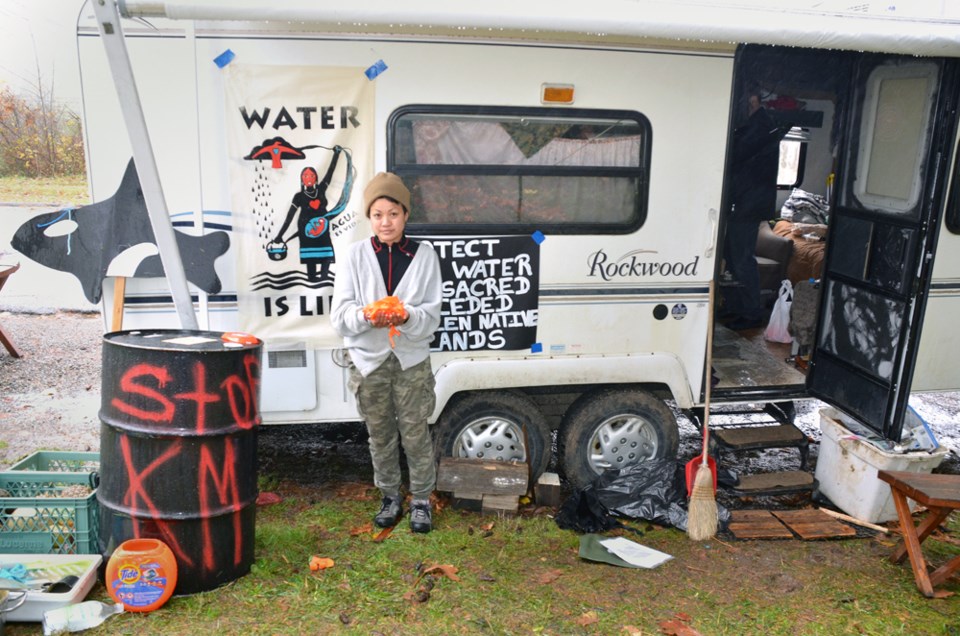Anti-pipeline activists have parked a small camper at the corner of Shellmont Street and Underhill Avenue in North Burnaby to keep an eye on Kinder Morgan.
The group – a “grassroots” movement not associated with any organization – is protesting the $7.4-billion Trans Mountain pipeline expansion project, which has faced fierce opposition from First Nations groups, the City of Burnaby and the B.C. government.
On Nov. 8, Xenoa Skinteh parked his home on wheels (one he’s dubbed Camp Cloud) at the Westridge Marine Terminal. A week later, he was “evicted” by the city’s parking enforcement supervisor, he told the NOW.
Skinteh then moved the “surveillance post” to Shellmont Street, near the Kinder Morgan property line, where he and others take photos of the vehicles coming in and out of the facility, and record everything in a log book.
“Kinder Morgan has moved forward without jurisdiction, without consent, with the construction and with the project,” said Uni Urchin, another protester.
Urchin added many people have dropped in over the last few weeks to show their support, bringing food or hot coffee with them.
“I’ve probably heard 100 people say, ‘I’m willing to die for this,’” noted Skinteh, who also pointed to the tiny house warriors, who are building 10 tiny houses on the pipeline route in an effort to stop the project.
Asked how long the group intends to stay at the Shellmont location, Urchin could only say “plans are always changing.”
“We’re just really hoping for more people to come and support and hold it down,” she said.
The hope is to turn Camp Cloud into a media station, with two screens, to be able to record and stream live events as they unfold, added Skinteh.
Besides watching the day-to-day happenings around the property, Urchin admitted she and others have removed about a plastic bag’s worth of orange tree tags.
The tagging was part of a tree assessment Kinder Morgan needed to complete to meet the city’s information requirements for its pipeline project. (As a standard requirement for any applicant that wishes to remove trees, the city requires a tree management plan which identifies any trees to be removed or retained.)
“I’ve seen many trees get cut for just a few billion dollars and it’s just not worth it. These trees carry strong medicine and will take care of the land here for many, many generations, and they are not to be touched with,” said Urchin.
In an email to the NOW, Trans Mountain said: “We have gathered the information we needed to complete the tree assessment, including documenting locations using GPS and on a site plan, and the tags themselves are no longer required.”



